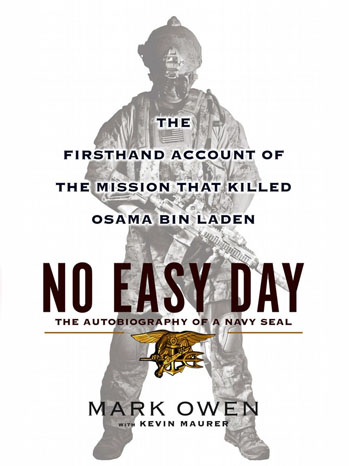
Washington, August 24: The US government was surprised by the news that a navy Seal who participated in the raid on Osama bin Laden's compound in Pakistan has written a book about the operation in which the al-Qaida leader was killed, US officials said on Wednesday.
'No Easy Day: The Firsthand Account of the Mission that Killed Osama bin Laden' was written by a navy Seal under the pseudonym Mark Owen with co-author Kevin Maurer and is to be released next month on the anniversary of the September 11 attacks. It was not vetted by government agencies to ensure that no secrets were revealed.
However, Christine Ball, a spokeswoman for the publisher , Dutton, said, "The book was vetted by a former special operations attorney. He vetted it for tactical, technical, and procedural information as well as information that could be considered classified by compilation and found it to be without risk to national security."
The book will be published at a time when Washington has been roiled by controversy over national security leaks ahead of the November 6 presidential election. Republicans have charged that President Barack Obama's administration has engaged in selective leaks to bolster the Democrat's national security credentials. The White House denies those accusations. 0But the book on the bin Laden raid appeared to catch officials off guard.
"We learned about this book on Thursday from press reports. We haven't reviewed it and don't know what it says," White House spokesman Tommy Vietor said. The Pentagon said it hadn't vetted the book or helped provide information to the authors. There are at least two Pentagon regulations requiring the defence department review writings by retired troops that contain sensitive material.





Comments
Add new comment